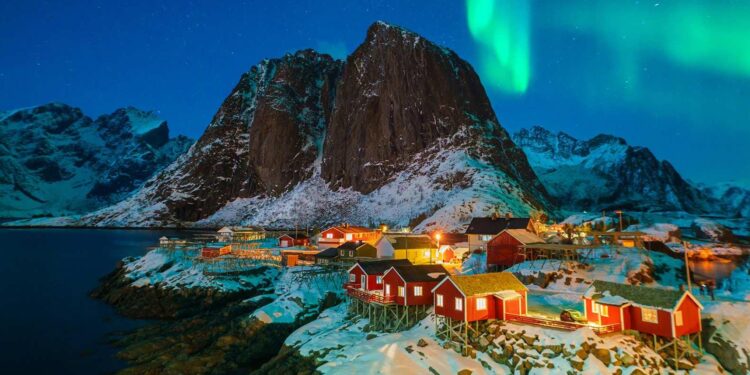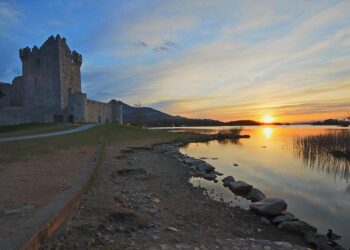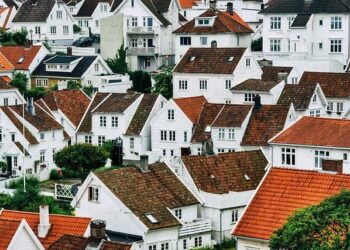Title: Decoding the Rise of Happiness in Iceland: A Blueprint for Well-Being
In recent years, Iceland has consistently ranked among the happiest countries globally, drawing attention to the unique blend of social, economic, and environmental factors that foster such widespread contentment. A recent BBC study attributes this Nordic islandŌĆÖs exceptional happiness to its strong community ties, robust social welfare programs, and deep connection with nature. Amid global uncertainties and shifting happiness indices worldwide, Icelanders maintain a remarkable level of resilience and satisfaction in their everyday lives. This article delves into the key drivers behind IcelandŌĆÖs enduring joy and explores how its model offers valuable lessons for nurturing well-being in todayŌĆÖs complex world.
Strengthening Social Fabric: The Foundation of Icelandic Well-Being
At the heart of IcelandŌĆÖs high happiness levels lies an extraordinary sense of communal belonging. The countryŌĆÖs small populationŌĆöapproximately 380,000 peopleŌĆöenables close-knit relationships where neighbors often know each other personally. This intimacy fosters a supportive environment that enhances emotional health and life satisfaction.
Icelanders prioritize social interaction through various cultural events such as neighborhood festivals or sporting activities like handball tournaments and cross-country skiing races. These gatherings not only encourage interpersonal connections but also reinforce shared identity.
Key aspects fueling this communal spirit include:
- Regular Cultural Celebrations: Events like ├×orrabl├│t (midwinter festival) bring communities together to celebrate heritage while strengthening bonds.
- Open Dialogue on Mental Health: Societal acceptance encourages honest conversations about psychological well-being, reducing stigma.
- Collective Outdoor Experiences: Group hikes across volcanic landscapes or visits to geothermal pools create shared memories that deepen social cohesion.
Innovative Mental Health Strategies Driving Positive Change
Iceland has made remarkable progress in reshaping its mental health framework by introducing inclusive programs aimed at increasing accessibility while building community support networks. These initiatives have played a crucial role in improving nationwide psychological wellness.
Noteworthy efforts include:
- Community Wellness Centers: Facilities offering therapeutic workshops alongside group activities designed to foster connection.
- Mental Health Awareness Initiatives: Campaigns educating citizens on early symptom recognition and encouraging timely help-seeking behavior.
- Digital Support Platforms: Online counseling services combined with peer-led forums provide flexible access to mental health resources.
Government investment underscores these advancements through policies emphasizing recovery-oriented care models focused on prevention and youth engagement:
| Main Focus Areas | Tangible Benefits |
|---|---|
| Earliness in Intervention | Lowers long-term incidence of chronic mental illnesses. |
| Youth-Focused Programs | Cultivates open communication among younger populations promoting healthy coping mechanisms. |
| Mental Wellness at Workplaces | Enhances employee morale leading to higher productivity rates. |
Harmonizing Environmental Care with Lifestyle for Better Health
Sustainable living is deeply ingrained within Icelandic culture, significantly contributing to both physical vitality and emotional balance. Residents embrace eco-conscious habits paired with active participation in local initiativesŌĆöa combination proven globally to elevate quality of life.
Core components shaping this lifestyle encompass:
- Nature Immersion:The abundance of glaciers, volcanic fields, hot springs like the Blue LagoonŌĆöand nearly continuous daylight during summer monthsŌĆöencourages frequent outdoor activities such as hiking or seasonal berry picking which positively influence mood regulation.
- Civic Participation Through Local Projects:The growth of farmersŌĆÖ markets featuring organic produce alongside urban gardening cooperatives promotes inclusivity while combating isolation.
- A Commitment To Renewable Energy:Iceland produces over 99% of its electricity from renewable sources including geothermal power; this collective environmental responsibility instills pride contributing directly toward citizensŌĆÖ sense of purpose.
- Sustainability Workshops:Taught skills range from composting techniquesto eco-friendly cooking methods empowering individuals towards self-sufficient lifestyles.
- < b >Community Clean-Up Drives :Events aimed at beautifying public spaces double as opportunities for residentsŌĆÖ social interaction.
- < b >Support For Local Artisans :Promoting craftspeople preserves cultural heritagewhile stimulating local economies reinforcing residentsŌĆÖ attachmentto their homeland .
Concluding Reflections on Iceland’s Happiness Blueprint
The BBC analysis underscores how resilience rooted in tight-knit communities,mindful governance,and environmental stewardshiphas propelled Icelanders toward unparalleled levelsof contentment.Despite challenges posed by rapid modernizationand previous financial crises,the nation continues fostering well-beingthrough deliberate policies prioritizing human connectionand sustainable living practices.
This inspiring example reveals that true happiness transcends individual experienceŌĆöit thrives within supportive societies shapedby intentional cultural valuesand strategic policymaking.As nations worldwide strive toimprove citizen qualityof life,Iceland stands outasa beacon demonstratingthat joy can be consciously nurtured when people unitewith purposeand respectfor their environment alike.
Beyond ecological advantages alone,the culture actively supports waste reduction via comprehensive recycling programs integrated into schoolsand neighborhoods.This approach not only advances sustainability but also strengthens community identity.
Examples illustrating these values include:
















